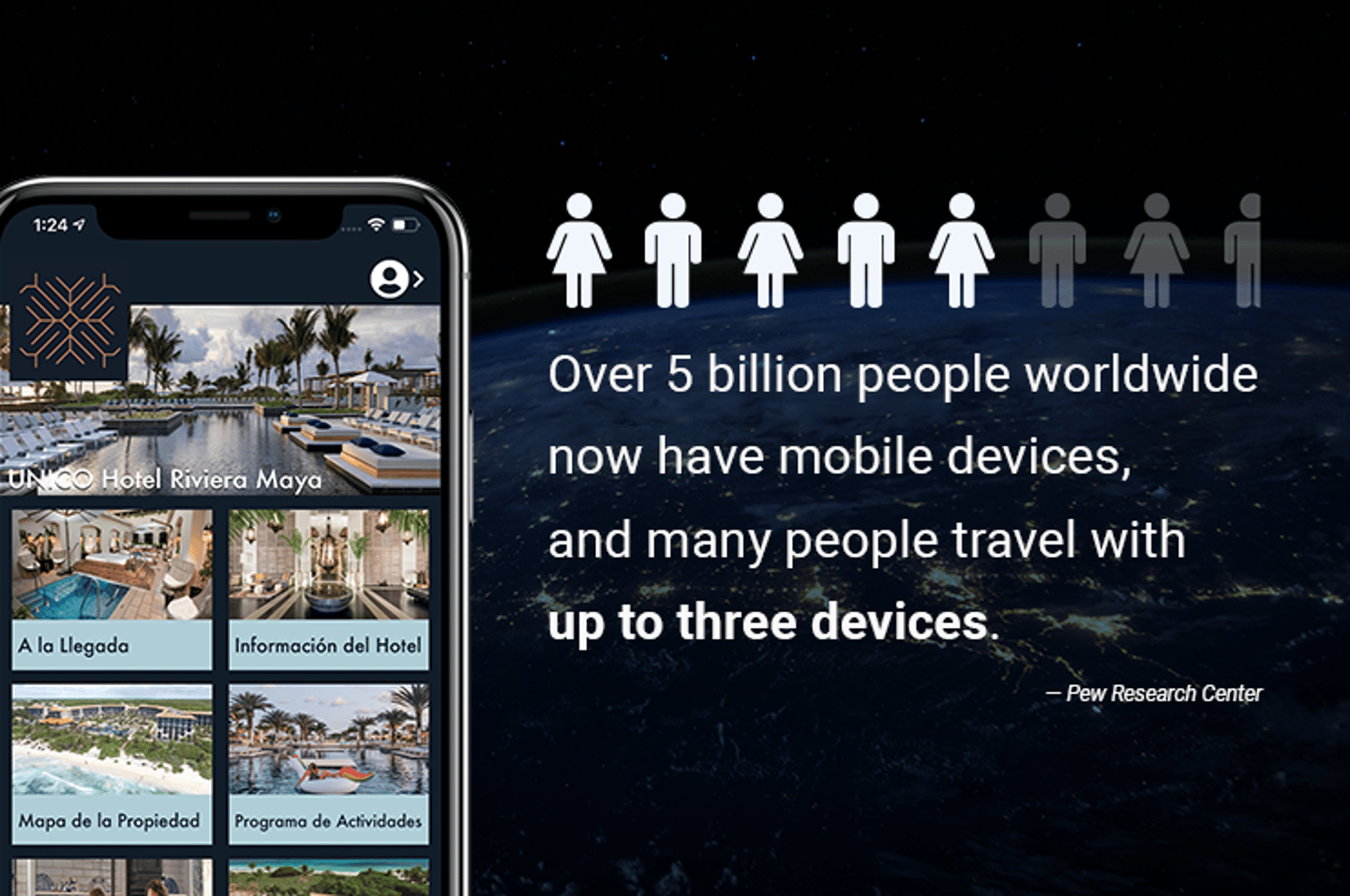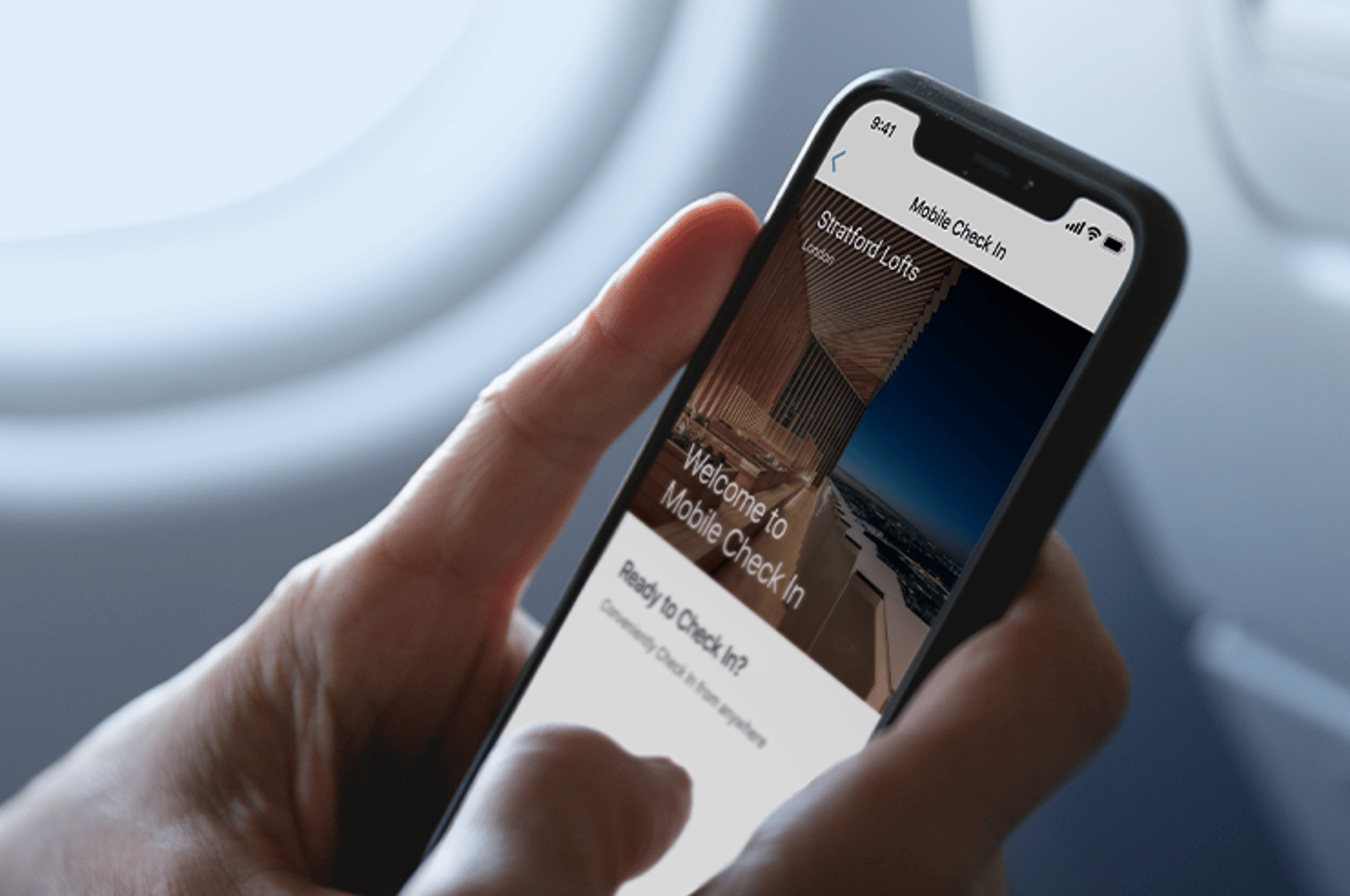The Importance of International Adaptability
The Pew Research Center recently reported that over 5 billion people worldwide now have mobile devices, and many people travel with up to three devices. In addition, the availability of 4G or better cell networks has increased at a global scale with 4G availability at approximately 80 percent across most countries.
The increase in cellular usage and availability has led to the need for the hospitality sector to meet the rising tide of digital-first travelers via the channels they’re most comfortable with — their mobile devices. We have already seen the airline industry adopt this type of mobile technology to great success and the ride-share industry was built using mobile, self-service technology as its foundation. Yet, the hospitality industry has been slow to embrace this technology, which has allowed entry for tech-leading competitors like Airbnb and VRBO.
The modern traveler wants to be able to book their flights to anywhere around the globe, check-in, access their boarding pass, track their luggage, catch a ride from the airport to their hotel, check-in to their room and order room service — all from their phone. The flow of information across international borders, currencies, languages, and even customs should feel seamless and completely natural.
While both airlines and ride-sharing companies have seen considerable success in utilizing mobile technology to the tune of billions of dollars in consumer and shareholder upside, why has the hospitality industry been slow to adopt mobile-first technologies at scale? Cost and ease of use are often key deterrents, along with high turnover rates that require training new staff and implementing new tech into an existing, often complex, tech stack. This list of barriers to entry gets longer when you add international brands and properties into the mix, as they also have to adhere to different regulations (such as GDPR) and various local currencies and taxes. Hospitality tech platforms need to be flexible and able to adapt to the industry’s wide range of needs.
Today’s mobile solutions and cloud-based platforms models make hospitality tech more accessible and affordable, reducing the barriers that hotels have historically faced. Mobile apps provide hotels with an instant connection to guests via the channel they’re already engaged on and create an opportunity to house many functionalities in a single location. Cloud-based platforms tend to be more flexible, customizable, and extremely easy to maintain compared to on-premise systems, which allows properties of all sizes to offer connected services and a guest experience modern travelers expect.
The use of mobile tech will continue to extend the accessibility of technology and mandate its adaptability across international borders. It's become increasingly important for hoteliers to implement tech solutions into their operations as our society continues to trend towards on-demand service and mobile-first interactions.


